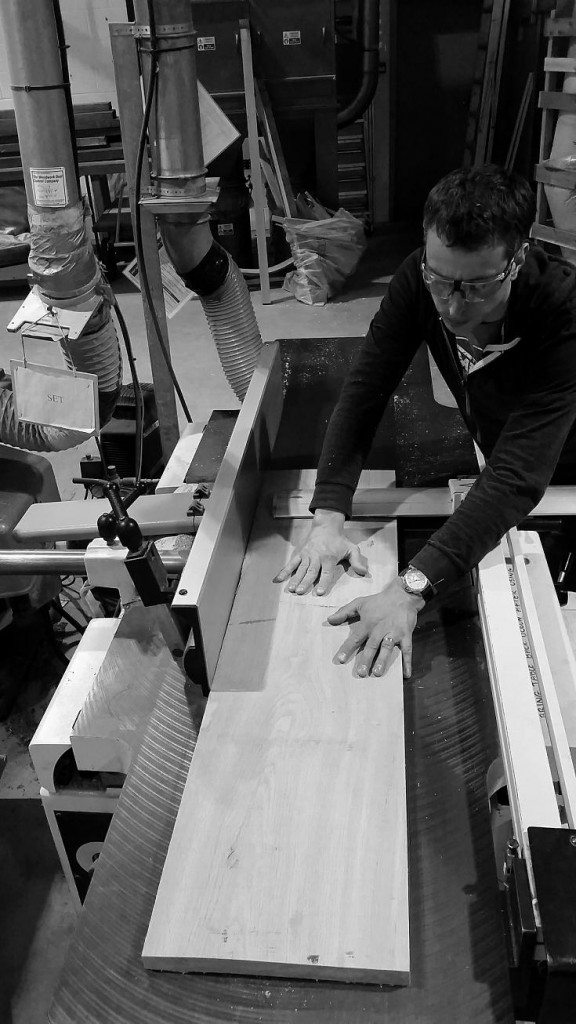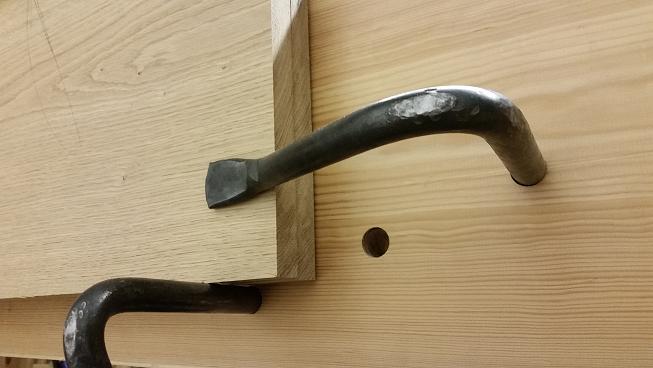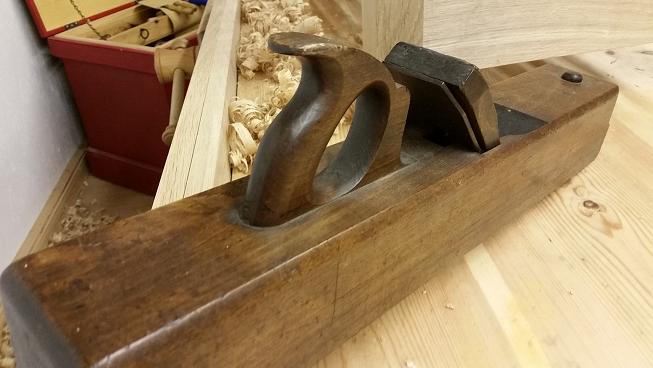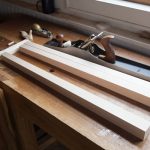We may receive a commission when you use our affiliate links. However, this does not impact our recommendations.
For a new woodworker, finding an effective way to work these days can be tough. It would be easy to choose a totally unplugged path. And what a wonderful path that is. The Eaton County Woodworker , Tom Fidgen and Peter Follansbee are examples of how exciting and dynamic that experience could be. Even though I get a great deal of satisfaction from doing a great deal of my work by hand, I can’t live up to a total unplug. Time has been short of late (as I’m sure it has been for you) and I have to move my table project forward so I can get back to finishing my jack plane. I needed to make the top, a task that requires milling.
It’s easy to dismiss those who mill stock by hand as wasting time. For me it’s context. If I chose to make an accurate historical piece it could be essential to mill by hand; however, for furniture styles of the last 120 years it would most likely make not a bit of difference to the finished project. So I turned to power to mill my boards. I’ll gladly admit I am lucky to have access to industrial machines that are likely not available to many – but I do have them and I’ll use them.
When starting out, I don’t think one should feel pressure to invest in machines. Practicing joinery on pre-milled stock would be a wise first choice but as time progresses and you need to process wood, you will need to think seriously about how to take things forward.
You may never need to buy a machine; check out your local area for guilds and clubs, consider buying lumber from some of the dealers who can provide you with pre-milled stock or there could even be a professional shop local to you willing to help out. Consider also that for the past 120 years or so, furniture and woodworking in general has relied on power milling and the designs that have fed from that take full advantage of it.
Appreciate, too, that the safe and proper use of machines is a very skilled task and from my perspective at least detracts not one bit from the quality of the final piece. Understanding good, sound construction methods, decent design and making truly useful things are more important than doing everything by hand. The key as always is to find your balance and keep the journey enjoyable. I’ll leave you this time with the thoughts of John Gloag and the delightful noise of a try plane.
“The really skilled craftsman who has outgrown the rather narrow dislike of machines becomes a singularly able director of furniture making, for he can arrange economies in production without affecting the quality of the workmanship, and relegate to the efficient wood-working machines of today the tasks they can execute quite well as, and far quicker than, a good cabinet maker”
— Graham Haydon
Here are some supplies and tools we find essential in our everyday work around the shop. We may receive a commission from sales referred by our links; however, we have carefully selected these products for their usefulness and quality.













Hi Graham, I think you’ve hit on one of the most tricky decisions when setting up a new workshop from scratch – how to approach the timber prep. With a very modest kit of old hand tools I’ve found that I’ve been able to suceed with a few small projects in just a tiny space, but as a beginner I don’t have the patience or skill to stand prepping boards over and over again – I’m too eager to see results!
Balance is certainly the key to keeping things enjoyable, and with the kit you’ve got there it makes a lot of sense to make the most of it when time’s tight. I’ve called upon Richard to do a lot of the prepping for me, it helps keep the work more varied!